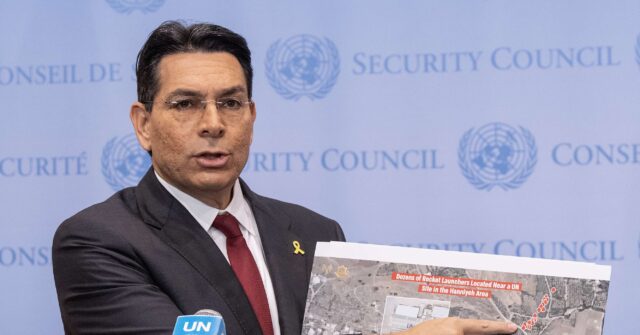On Sunday, the Israel Defense Forces (IDF) presented evidence indicating that Hezbollah, the Iran-backed militant group, is operating in close proximity to United Nations Interim Forces in Lebanon (UNIFIL), effectively using these peacekeeping soldiers as human shields. The situation has drawn significant international criticism, particularly from the United States, following incidents in which UNIFIL personnel have been injured during Israeli military actions targeting Hezbollah positions. Detractors of Israel have accused the IDF of intentionally attacking UNIFIL, while the IDF has countered by asserting that Hezbollah deliberately places these troops in danger, despite the IDF’s efforts to communicate potential threats to UN forces.
Since August, Israel has voiced concerns that Hezbollah exploits UNIFIL’s presence for its tactical advantage, providing maps as evidence to bolster its claims. This information included a drone video and photographic evidence of Hezbollah’s munitions situated near UN positions in southern Lebanon. Military correspondent Itay Blumental revealed further evidence, including a video showing a Hezbollah tunnel located adjacent to a UNIFIL base, which underscores the severity of the situation.
Over the last month, Hezbollah’s operations from their fortified compounds, situated near UNIFIL installations, have resulted in the launch of approximately 25 rockets and missiles targeting Israeli communities and IDF personnel. These attacks resulted in the deaths of two Israeli soldiers, highlighting the dangers posed by Hezbollah’s use of underground and above-ground facilities for orchestrating terror activities against Israel. The IDF has conducted carefully targeted ground operations in southern Lebanon, revealing significant caches of arms, including firearms and rocket launchers, stored in close proximity to UNIFIL posts, which are intended for offensive operations against Israeli territory.
UNIFIL was originally deployed to enforce UN Security Council Resolution 1701, which aims to limit Hezbollah’s military presence south of the Litani River. However, Lebanon and the international community have repeatedly failed to enforce this resolution over the years, allowing Hezbollah to reinforce its military infrastructure in direct violation of the mandate. The IDF emphasizes that its operations target only Hezbollah elements and not UNIFIL assets, ensuring that their actions are not aimed against UN peacekeeping forces, which are positioned in an active combat zone.
Despite the intended peacekeeping role of UNIFIL following the 2006 conflict, Israeli officials have described the operation as an “utter failure.” Prime Minister Benjamin Netanyahu has expressed frustrations with UNIFIL’s inability to address the threat posed by Hezbollah and called for the organization’s withdrawal from southern Lebanon. Officials like David Mencer have indicated that UNIFIL’s reluctance to reposition its forces away from areas of heightened risk endangers both their personnel and Israeli soldiers, illustrating the complexities of the situation.
While the IDF continues to engage in combat against Hezbollah, it asserts its commitment to minimizing risk to UNIFIL soldiers. The prevailing sentiment among Israeli officials is that UNIFIL has not fulfilled its peacekeeping mandate effectively, resulting in a dangerous environment for both the local population and international forces present in the area. The ongoing situation underlines the challenge of maintaining stability in a region marked by entrenched conflict and the manipulation of international peacekeeping efforts by militant groups like Hezbollah.

